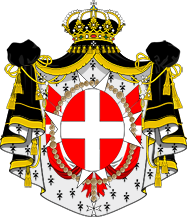Why to invest in Malta


| Malta at a glance | |
|---|---|
| LOCATION | Southern Europe |
| CAPITAL | La Valeta |
| CURRENCY | Euro |
| OFFICIAL LANGUAGE | English and Maltese |
| POPULATION | 427,400 inhabitants 2014 |
| AREA | 316 km2 |
| POLITICAL SYSTEM | Republic with a single chamber administrative body |
| PIB | 9,643 million US$ 2014 / 22,776.20 US$ per capita 2013 |
| Source of economic figures:: World Bank | |
Due to its strategic location and advantageous tax laws, Malta is considered one of the most attractive European areas to establish commercial and financial relations.
As it has been a member of the European Union since 2004, Malta may take advantage of all the current international treaties that are applicable in the area. It is also a member of the European Monetary Union (Euro currency), thus generating a high exchange stability in its financial system.
The modern and diversified economy of Malta mainly concentrates on the service sector, it thus being a highly developed, attractive state for foreign investment.
Malta has high juridical security, both national as well as international, which is exemplified by the fact that it is one of the countries that complies with the international requisites established by the OECD and the FATF.
Moreover, its constant growth and financial development in recent years, aided by creation of an attractive tax and legislative framework, that have led to Malta now being considered one of the most used destinations for investment diversification and internationalisation.
Taxation and Type of Companies
Both for resident Individuals as well as legal persons, the tax system is based on the criteria of world revenue.
Taxation of Individuals
Personal income tax for natural persons is defined by bands and normally ranges from 0% to 35%, according to the volume of revenue received during the financial year.
There are specific special regimes such as, for example, a fixed rate of 15% being applied to highly qualified employees who work at technology companies.
Taxation of Corporate Entities
The general company tax rate is 35%. However, dividends are distributed to non resident shareholders, there is a tax credit system that, as a general rule, allows the following reimbursement:
6/7 of the 35% tax paid, thus providing an effective rate of 5%.
5/7 of the 35% tax paid, thus providing an effective rate of 10%, for revenue from liable interest rate and/or royalties subject to low taxation.
The general Value Added Tax (VAT) rate is 18%.
Other Taxes
Regarding other taxes, we may point out that there are no taxes on
Property tax (real estate)
Inheritance tax
Donation tax
Wealth tax
There is no withholding on payment of interest and royalties.
Features of the Main Types of Companies
There are now several types of companies in Malta, the most common being Private Limited Liability Companies (Ltd).
Ltd companies are highly flexible companies, both in terms of shareholders (minimum of 2) as well as directors, as both offices may be held by natural or legal persons, both resident or foreign. Even so, it is recommendable for at least one local resident to be appointed to the office of director. Maltese companies must also have a secretary.
With regard to stock capital, the minimum mandatory amount is 1,200 euros or its equivalent in another currency, and it must be nominative.
With regard to their accounting obligations, Ltd companies must prepare annual accounts that must be drawn up within 10 months of the financial year end. There is the possibility of requesting an extension of the term of presentation, reaching a maximum of 18 months. All companies must undergo an annual external audit.
Benefits of the Corporate System
Holding Regime (“Participation Exemption”)
In its legislation, Malta has developed a holding regime that eliminates revenue obtained from subsidiary dividends or capital gains generated from their sale from the taxable base. The conditions to obtain exemption are:
As a general rule, the Maltese company must be the owner of at least 10 % of the capital of the subsidiary company.
Moreover, subsidiaries must fulfil one of the following requisites:
They must be considered active companies, that is, a maximum of 50% of their revenue must come from dividend activities, interest or royalties.
The subsidiaries must be tax resident in one of the countries of the European Union.
The subsidiaries must be subject to company tax at a minimum rate of 15%.
Conventions
As Malta is a member of the European Union, the European directives as well as all the international treaties signed by the EU apply. It also signed the FATCA convention with the United States in June 2014.
Network of Conventions to Avoid Double Taxation
Malta currently has 70 conventions to avoid double taxation. For additional details, refer to our summary of its double taxation agreements network.
Network of Information Exchange Agreements
Malta has also signed a series of information exchange conventions.
| IEA’s SIGNED BY MALTA | |
|---|---|
| COUNTRY | YEAR OF ENACTMENT |
| The Bahamas | 30 October 2012 |
| Bermuda | 5 November 2012 |
| Gibraltar | 1 April 2012 |
